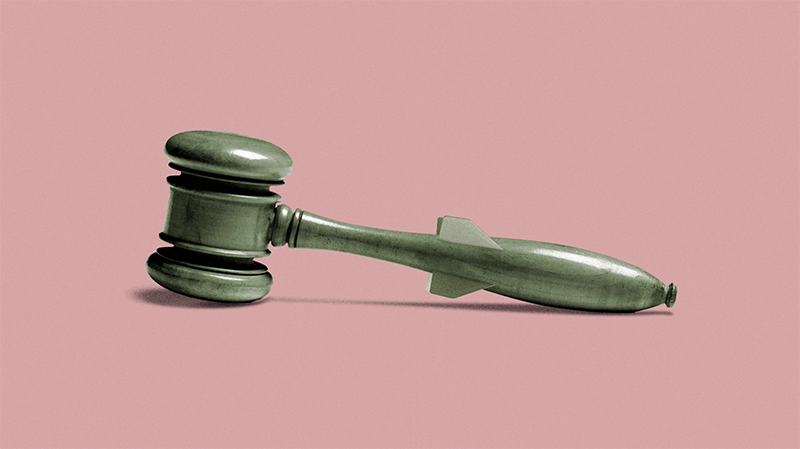As the Russian army leaves a trail of atrocity in Ukraine, a trial held here this month offers a powerful template for prosecuting war crimes. The Swedish case—involving a former Iranian official accused of participation in the mass murder of political prisoners in the late 1980s—is based on the principle of universal jurisdiction. According to this doctrine, the national courts of any state that has adopted this principle may prosecute someone suspected of grave crimes, no matter where they occurred and irrespective of the nationality of the suspect.
The defendant, Hamid Nouri, also known as Hamid Abbasi, worked in Iran’s prison system for much of the rule of Ayatollah Ruhollah Khomeini and allegedly oversaw the executions of thousands of regime opponents in his name. The trial began in August 2021, and at its conclusion, on May 4, the court had held 93 sessions and heard 35 plaintiffs, 26 witnesses, and 12 expert testimonies. If convicted of the charges of war crimes and murder, Nouri faces a possible sentence of life in prison. The verdict is expected on July 14.
